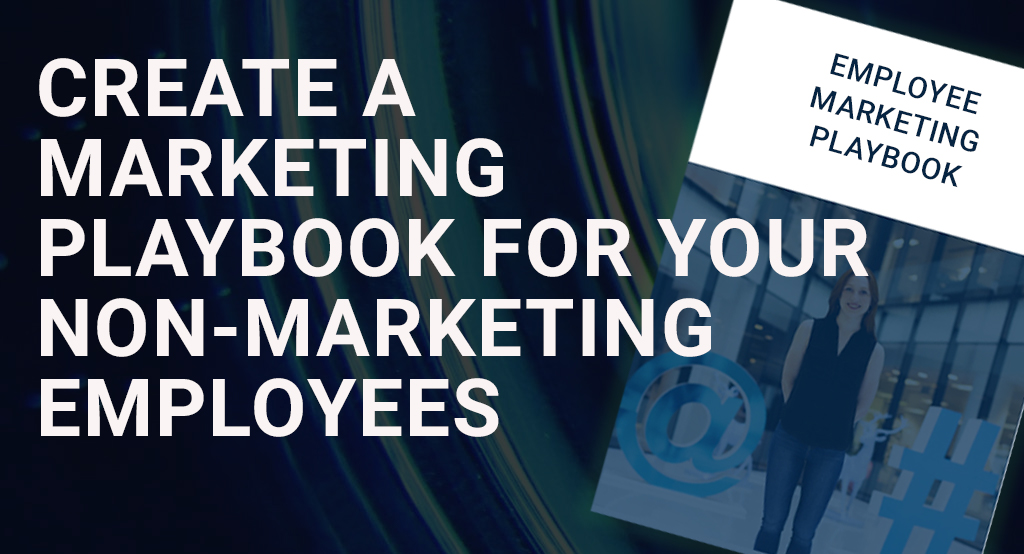Your employees are a great marketing asset. Be sure they have a marketing playbook to empower them to be more successful.
Your employees and team are some of the most valuable marketing assets your businesses possesses. They are the face and voice of many of your businesses for most, if not all of your customers.
It’s to your company’s benefit to encourage them to help market your business by being active in social media, networking events, or even in their 1:1 email communications. The benefits of them getting more of the word out about how your business does what it does so well are plenty, but so are the risks.
Employees over-sharing or providing opinions that can be interpreted as “policy” can be a dangerous liability for your business. It’s important that you establish a Marketing Playbook for your employees to protect your brand while fostering their desire to promote your business.
Here are some steps you can take in creating a healthy culture of company promotions while mitigating the threats of a poor brand experience for your potential customers.
Should You Get Legal’s Permission?
We know this can slow the process down, but the answer to this can greatly depend on your products and services. If you’re working with international customers, GDPR Compliance is a larger factor and could affect the way you market or communicate with customers.
Many marketers have never had close interaction with legal teams. Employees outside of the marketing department have almost certainly never experienced the stressful rush of energy spent on a PR emergency because of the wrong information being shared. If you want to spare yourself a stressful situation, our advice is to leverage legal during this process.
Assuming you have a process for how you’ll involve legal, it’s time to build some guidelines for your employees to market your business.
- Teach Prudence
If your employees are sharing information on social media, provide some best practices to help them be more effective in what they share. If your business likes to focus on specific hashtags, be sure to include them in a list. Teach employees not to SPAM their social media channel. - Teach KPIntelligence
Key Performance Indicators or KPIs are something sales & marketing teams live on for judging much of their success or challenges. Teams outside of your marketing department don’t always understand the KPIs that matter most to the success of your marketing. Don’t waste too much time teaching them how to build a watch, but be sure they understand the KPIs that matter. Otherwise, you may see your teams move in too many different directions with results that barely matter to the metrics you’re using to judge your campaign’s success. - Teach Voice and Brand Guidelines
Typography, colors, voice, are just a few things that you want to help your teams adhere to for their marketing efforts. You don’t want to inhibit their desire to share, but you need to be sure they are using a professional voice that is consistent with your brand. Spelling and grammar are two culprits that rear their ugly head in many employee communications. You can’t control mistakes that may be made, but try to nip them as you find them. - Teach Value of Participation
Too many times, employees are mandated or publicly intimidated into doing social media sharing or blog contributions. It’s not much fun to be told you have to do something. Furthermore, if writing or marketing sounds like painful torture, people are just not going to give you positive output. Just like a marketer needs to provide case studies for potential customers or campaigns, provide some case study data to give your team a solid “Why” to marketing your business. - Crawl, Walk, Run
Don’t expect your team to go from 0-100 on day one. Ease them into success. Give other departments small goals that encourage an easy completion goal. The more they succeed, the more they’ll create a rhythm to the process and soon, you’ll see more and more natural activity.
Don’t forget that it’s not your non-marketing employee’s job to do marketing. However, you’re going to get some excited to be involved and others that would sooner quit than be forced into becoming a marketer. No problem. You can’t control their outcome, you can only aid them with the best tools you can for them to succeed. Create a marketing playbook that does just that and you’ll soon see a lift in your employee engagement and profitability.

